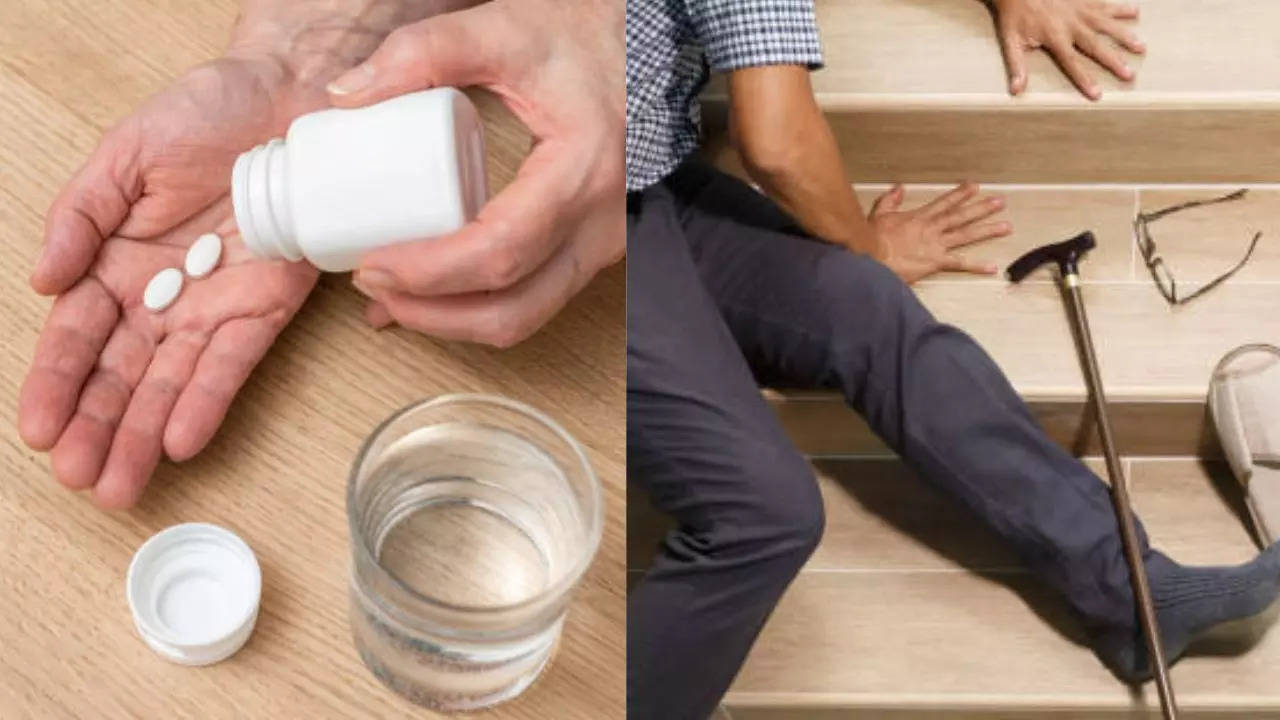Contents
-
news
-
Health
Taking Vitamin D Won’t Prevent Falls or Fractures—Here’s What Will Happen
According to experts, taking vitamin D and calcium does not reduce the risk of falls or fractures in older adults. However, these important supplements still provide other health benefits but should not be the only precautions taken to prevent falls and fractures. Read on to learn different ways to prevent bone loss and fractures.

Taking vitamin D supplements with or without calcium may increase the risk of kidney stones.
A new study released last week by the US Preventive Services Task Force says that taking vitamin D supplements alone along with calcium may not reduce the risk of fractures and falls in older adults. According to statistics, fragility fractures occur most often in the elderly and the lifetime risk of fracture ranges between 40-50 percent in women and 13-22 percent in men.
Most people take vitamin D and calcium because your body needs the vitamins to absorb calcium—which is essential for bone health. However, even though the panel report says vitamin D does not reduce fracture risk occurs in older adultsIt did not clearly indicate that people should give up vitamin D or calcium or that there is no benefit from them.
The report reported a systematic review of research on the role of calcium, vitamin D and falls in older adults concluded with moderate certainty that vitamin D supplementation has no benefit in preventing falls and fractures in older adults.
While there is no significant benefit of vitamin D on bones, experts have also found that taking vitamin D supplements with or without calcium may increase the risk of kidney stones.
Why are you more prone to fractures as you age?,
According to experts, as you age, the risk of falls and fractures increases Bone stock has already peaked in your 20s and 30sAnd so, as you age, the quality of your bones starts to decline and if you fall, you will be more likely to suffer a fracture.
Additionally, as we age, mobility also becomes more difficult due to conditions such as osteoarthritis or other forms of arthritis, which slightly alter the way you move.
How do Vitamin D and Calcium benefit?,
Experts say the findings don’t suggest there’s no value in taking vitamin D and calcium — only that the combination isn’t good for preventing falls and fractures.
In addition to strengthening your bones, vitamin D and calcium are also important for your muscles and brain function. Doctors generally recommend that people get these through food rather than supplements, but supplements are an option for people who aren’t able to get enough from food, such as:
- who have osteoporosis
- who have problems absorbing certain nutrients
- People who eat a low-calcium diet
- people who don’t spend time outside
- People who suffer from hyperparathyroidism or celiac disease
How can you reduce the risk of falls and fractures?
Doctors say that just taking supplements may not help you reduce your risk of fractures and bone loss. For that, you have to:
take regular walks
You need to get out of your house more often. Regular walking not only strengthens muscles and bones but also restores balance.
strength training
Weight lifting exercises help strengthen bones,
balance exercise
Doing balance exercises like tai-chi, Pilates and yoga help strengthen your bones.
boost your protein
Getting plenty of protein may help reduce the risk of fractures and falls
regulate sleep
Getting enough sleep is important as it can keep you refreshed and rested, which reduces the risk of falls.
Get the latest news live on Times Now with breaking news and top headlines from around the world.


